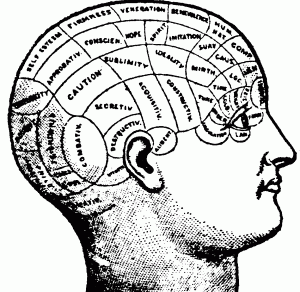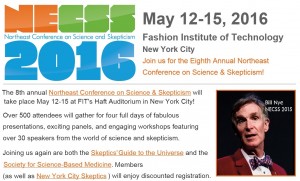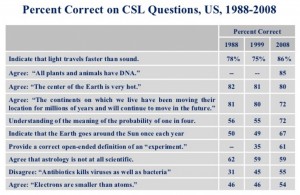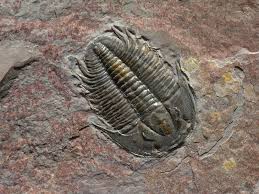Jun
19
2017
 It seems that for every major practice in the world there is someone who will add an unnecessary layer of woo or pseudoscience. This is generally done for marketing, appealing to the emotions, which I guess is the underlying problem – that there is a market for feel-good pseudoscience. Sometimes the practice is philosophy-based, but that is just a way of saying that the pseudoscience is embedded in the culture.
It seems that for every major practice in the world there is someone who will add an unnecessary layer of woo or pseudoscience. This is generally done for marketing, appealing to the emotions, which I guess is the underlying problem – that there is a market for feel-good pseudoscience. Sometimes the practice is philosophy-based, but that is just a way of saying that the pseudoscience is embedded in the culture.
Yoga is a good example. Start with stretching and exercise and mix in gratuitous woo. Massage is similar – there’s nothing wrong with getting a good massage, and it can relax tight muscles. Too often, however, they feel the need to talk about releasing toxins or activating your chi.
In other cases the process is the reverse, the pseudoscience came first and real science is just a patina on top to help make it more palatable. Naturopathy is a good example of this – it is based almost entirely on various pseudoscientific practices, like homeopathy, water cures, and nutritional pseudoscience. They throw in, however, some common-sense advice about diet and exercise and market themselves as lifestyle practitioners. They are defined, however, by the pseudoscience. You also can’t trust what they say, right or wrong, because they do not have a science-based quality control filter in place. So any given bit of advice can be complete nonsense. Continue Reading »
Aug
30
2016
 Don’t be confused by the headline – my intention is not to defend pseudoscience itself but rather the use of the term “pseudoscience.” In a recent commentary for American Scientist, Katie L. Burke argues that journalists and science communicators should stop using the term, “pseudoscience.” I disagree with her position and I think she is committing a number of logical fallacies, which I will now explore.
Don’t be confused by the headline – my intention is not to defend pseudoscience itself but rather the use of the term “pseudoscience.” In a recent commentary for American Scientist, Katie L. Burke argues that journalists and science communicators should stop using the term, “pseudoscience.” I disagree with her position and I think she is committing a number of logical fallacies, which I will now explore.
She writes:
A guiding tenet has emerged through years of climate change discussions and other polarizing scientific debates: Framing issues as “us versus them”—with a clear ingroup and outgroup—encourages polarization. The term pseudoscience inherently creates this framing, pitting those who believe in “real” science against those who believe in “fake” science. But these discussions really indicate whom we trust. And maybe if people trust alleged pseudoscience over science, we should be discussing why, rather than dismissing their values and beliefs.
Ironically Burke is not considering how she is framing her own discussion of use of the term “pseudoscience.” She is framing the distinction as a value judgment, rather than what it is, a judgment regarding scientific process and evidence.
Making objective statements about facts and logic is not a dismissal of someone’s values and beliefs. If Burke had any familiarity with the skeptical literature (and her essay provides much evidence that she does not) she would know that this is a point of heated discussion. In short, we try very hard to separate personal values and beliefs from science. Science is a process of empirically investigating the universe with valid logic.
Continue Reading »
May
19
2016
There has been a lively exchange surrounding John Horgan’s article about skeptics, which I responded to previously. (See also Orac’s and Daniel Loxton’s responses.) At the core of Horgan’s piece is a logical fallacy so common, I feel it deserves special attention. In fact, PZ Myers wrote approvingly of Horgan’s fallacy, showing that it is still alive and well.
That fallacy can be called the fallacy of relative privation, which is a type of red herring or distraction from actual issues. The fallacy is essentially an argument that a problem is not important or does not deserve attention and resources because there are other more important problems. “Why are you wasting your time on X when there are children dying of cancer?”
In Horgan’s case, he would like us to end all war and bring about everlasting world peace before we tackle lesser problems like quackery, fraud, global warming, vaccine denial, the environment, and other such trivialities.
Continue Reading »
May
17
2016
 This past weekend at NECSS 2016 we invited science journalist John Horgan to give a talk on “Skepticism: Hard Versus Soft Targets.” We’re always game for some critical introspection. It keeps things interesting if nothing else.
This past weekend at NECSS 2016 we invited science journalist John Horgan to give a talk on “Skepticism: Hard Versus Soft Targets.” We’re always game for some critical introspection. It keeps things interesting if nothing else.
Unfortunately the talk, which he has now published on Scientific American’s website (which means it’s fair game), was more than a bit disappointing – not because he was critical, but because he does not seem to get skepticism with a small or a big “S.” The result was a string of cherry picked strawmen.
He begins:
“I hate preaching to the converted. If you were Buddhists, I’d bash Buddhism. But you’re skeptics, so I have to bash skepticism.”
That makes you a contrarian, not a skeptic. How about telling it like it is? Most ideas and movements are a mix of good and bad, and it often takes some effort and nuance to tease this apart. Or, you can just “bash” an entire philosophy simplistically because you fancy yourself an independent thinker. There is also nothing wrong with “preaching” to the choir – it’s not about conversion, but education.
Continue Reading »
Apr
01
2016
 Given the date today, I had to be careful. Is the Royal Institution investigating quantum astrology? No, but those Brits can be quite cheeky.
Given the date today, I had to be careful. Is the Royal Institution investigating quantum astrology? No, but those Brits can be quite cheeky.
When I saw this headline, Lasers could ‘cloak Earth from aliens’ on the BBC website, I thought they might be having a laugh. The alternative was a bit of hyperbole in science news reporting, which is a daily occurrence. The paper on which the item is based was officially published on March 30, so I think it’s legit.
What’s going on here is that two astronomers, David M. Kipping, and Alex Teachey, did a thought experiment – what would it take to disguise the Earth from aliens using the transit method to discover the Earth? Continue Reading »
Dec
14
2015
 A recent commentary published in the New Scientist addresses the issue of scientific literacy and civic decision-making. The author notes:
A recent commentary published in the New Scientist addresses the issue of scientific literacy and civic decision-making. The author notes:
We have a long tradition of allowing civic affairs to be settled by persuasive rhetoric. That is inadequate for our modern society. Science and technology shape our world and, as a society, we need to make well-reasoned and scientifically literate choices about everything from genetic engineering to geoengineering.
But many of the tools used to make science-heavy decisions are also needed to properly evaluate a much broader range of subjects: in particular, critical thinking and numerical analysis.
I completely agree. The process of public decision-making should default to an objective and critical analysis of the relevant evidence. That should always be step 1. Rather, it seems that all sides of an issue feel empowered to have their own facts, their own interpretation of reality.
Continue Reading »
Oct
30
2015
 Journalists frustrate me. Whenever they cover a topic about which I have a fair degree of knowledge, or even expertise, they seem to do a generally poor job. There are excellent journalists out there, but the average mediocre journalist tends to fall for the fallacy of false balance, indulge in hype and sensationalism, overly rely on individual experts who may have quirky opinions, and often fail to put topics into a proper context.
Journalists frustrate me. Whenever they cover a topic about which I have a fair degree of knowledge, or even expertise, they seem to do a generally poor job. There are excellent journalists out there, but the average mediocre journalist tends to fall for the fallacy of false balance, indulge in hype and sensationalism, overly rely on individual experts who may have quirky opinions, and often fail to put topics into a proper context.
These failings are exacerbated whenever the topic at issue requires critical thinking and a high degree of skepticism.
Even generally high quality news outlets, like NPR, tend to fail when they deal with topics which require both expertise and skepticism, such as alternative medicine. A recent episode of Marketplace with Colin McEnroe is an excellent example of how a generally reasonable journalist can completely fail when dealing with such topics.
Continue Reading »
Oct
13
2015
 The 2015 Nobel Prize for Physiology or Medicine went to three scientists who discovered treatments for parasites. Tu Youyou shared half the prize for her discovery of artemisinin, an effective drug against malaria.
The 2015 Nobel Prize for Physiology or Medicine went to three scientists who discovered treatments for parasites. Tu Youyou shared half the prize for her discovery of artemisinin, an effective drug against malaria.
Youyou is a Chinese researcher and, as has been widely reported, she relied on traditional Chinese texts to search for candidate herbs to test for activity against malaria. This has sparked a public debate about what lessons we can derive from this fact. Promoters of traditional Chinese medicine (TCM) argue that is shows the value of TCM. Amazingly (revealing their intellectual dishonesty) Naturopaths crowed that this was a vindication of naturopathic medicine.
Scott Gavura over at Science-Based Medicine gives a great analysis of what Youyou’s work really means. Meanwhile the New York Times struggles to give a “false balance” approach to the issue. There are a few interesting points worth highlighting.
The story itself is uncontroversial. Youyou set out specifically to find a drug that would be effective against malaria, which remains a serious medical problem for much of the world. Existing drugs, quinine and chloroquine, were developing resistance, and a replacement was needed. Her starting point was TCM texts, looking for any natural product that was used to treat fever. She came up with 2000 candidates.
Continue Reading »
Oct
01
2015
 If I had to choose the one thing that has most transformed human civilization it is science. Prior to this remarkable invention history was characterized by conflicting ideologies, philosophies, superstitions, and religions.
If I had to choose the one thing that has most transformed human civilization it is science. Prior to this remarkable invention history was characterized by conflicting ideologies, philosophies, superstitions, and religions.
Some practical knowledge managed to move forward, including various technologies and even enlightenment philosophy, but our attempts to understand and manipulate the world were burdened with magical thinking. Science set us on a new track, and in the last few centuries we have systematically replaced our old traditional thinking about the world with scientific thinking.
A thousand years ago European physicians attempted to understand and treat illness by manipulating the four humors while their eastern counterparts were faring no better with an astrology-based system of blood letting. If we wanted to anticipate future events, an astrologer would consult fanciful charts that have no actual influence on reality. If we wanted to make our lives better, ensure a good harvest, or survive a plague we would pray to imaginary powerful beings.
Continue Reading »
Sep
22
2015
 Part II: Sudden Appearance
Part II: Sudden Appearance
This is a continuation of my blog post from yesterday, deconstructing 44 alleged reasons to doubt evolutionary theory. In Part I I addressed the claim that there are no transitional fossils, which is a bold creationist lie they maintain despite the copious evidence and the fact that their misinterpretations have been publicly corrected.
The next series of “reasons” #7-12, attempt to support the claim that species appear suddenly, as if they are created. Snyder begins:
If the theory of evolution was true, we should not see a sudden explosion of fully formed complex life in the fossil record. Instead, that is precisely what we find.
Once again we see the creationist tactic of giving partial selected information, rather than putting the entire picture into perspective. They are not looking for proper perspective – they are looking for deception.
Continue Reading »
 It seems that for every major practice in the world there is someone who will add an unnecessary layer of woo or pseudoscience. This is generally done for marketing, appealing to the emotions, which I guess is the underlying problem – that there is a market for feel-good pseudoscience. Sometimes the practice is philosophy-based, but that is just a way of saying that the pseudoscience is embedded in the culture.
It seems that for every major practice in the world there is someone who will add an unnecessary layer of woo or pseudoscience. This is generally done for marketing, appealing to the emotions, which I guess is the underlying problem – that there is a market for feel-good pseudoscience. Sometimes the practice is philosophy-based, but that is just a way of saying that the pseudoscience is embedded in the culture.
 Don’t be confused by the headline – my intention is not to defend pseudoscience itself but rather the use of the term “pseudoscience.”
Don’t be confused by the headline – my intention is not to defend pseudoscience itself but rather the use of the term “pseudoscience.”  This past weekend at NECSS 2016 we invited science journalist John Horgan to give a talk on “Skepticism: Hard Versus Soft Targets.” We’re always game for some critical introspection. It keeps things interesting if nothing else.
This past weekend at NECSS 2016 we invited science journalist John Horgan to give a talk on “Skepticism: Hard Versus Soft Targets.” We’re always game for some critical introspection. It keeps things interesting if nothing else. Given the date today, I had to be careful. Is the Royal Institution
Given the date today, I had to be careful. Is the Royal Institution  A
A 








